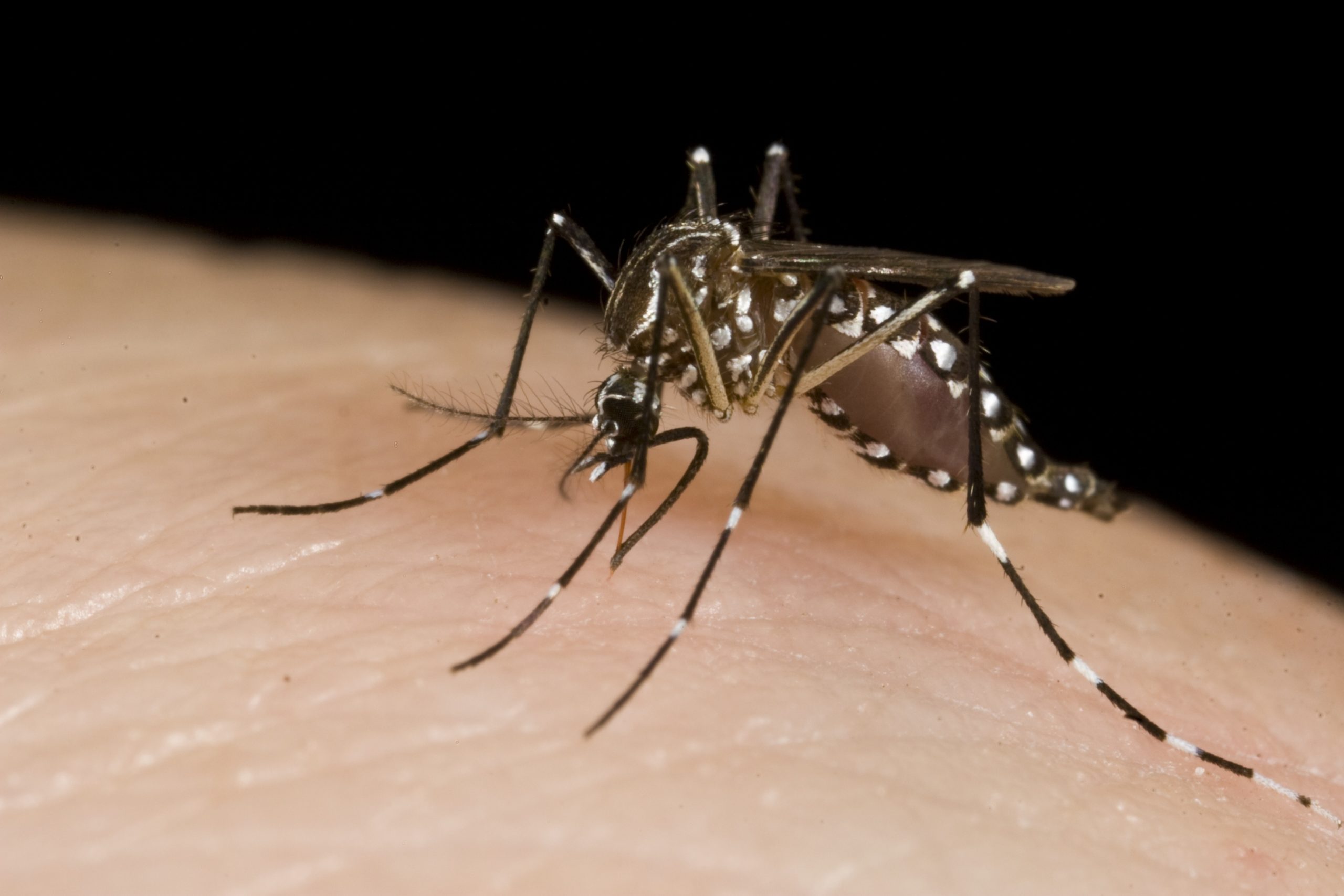
If you could kill them all, would you? (DFAT/Flickr)
Oxitec, a British company, is awaiting FDA approval to release a population of genetically modified mosquitoes into the Florida Keys, and residents are not pleased. A change.org petition has garnered over 137,000 signatures. Oxitec insists that they have tested the modified mosquitoes thoroughly, and that they pose no threat whatsoever to humans or the ecosystem as a whole. Protesters are unconvinced, and remain concerned about the possible ramifications of the release of the insects.
How it Works
Only male mosquitoes are modified, and the implanted gene is designed to glow red under a black light, to easily distinguish GM mosquitoes from their organic counterparts. The gene sends out a protein chain that makes the mosquito “self-destruct.” But the gene is switched off in the DNA of the originally-modified insects, which are then scattered throughout an area with a native mosquito population. The GM male mosquitoes mate with a female, whose offspring carries the now-active suicide gene. They all die as larvae, thus reducing the mosquito population.
Mosquitoes Suck!
Over one million people are killed by mosquito-borne illnesses like malaria, dengue fever, and West Nile every year, while many millions more are infected. In an NPR podcast called “Kill ‘Em All,” Sonia Shah, author of The Fever, claims that mosquitoes have caused “one half of all deaths since the stone age.” South Florida has been experiencing a dengue fever outbreak recently, which officials fear is just the beginning.
Pesticides and other preventative measures are often ineffective, and they can themselves cause health issues in humans. Remember how popular DDT was, before we realized it was toxic? Michael Doyle, the director of the Florida Keys Mosquito Control District (FKMCD), has “tried everything from chemical fumigations to parasitic nematodes, dragonflies, everything you could think of” including a drone to help locate breeding grounds. Doyle and others feel that genetic modification is the safest and most effective route to protecting people from a serious disease.
Brazil
Brazil has long been plagued by dengue fever. In 2011, Oxitec released a population of genetically modified male mosquitoes to combat the disease. According to Hadyn Parry, chief executive of Oxitec in Brazil, within six months of release the mosquito population was reduced by 96%. And the next year after the rainy season, the usual explosion of mosquitoes never came. There have been a series of GM mosquito trials in various locations in Brazil and the Cayman Islands, and Oxitec claims that in all cases at least 80% of the native mosquito population was killed in the first round. Panama has begun its first trials with the technique, and Oxitec is engaged in talks with government officials in India and Malaysia to begin the process.
Why Shouldn’t We?
Although Shah insists that mosquitoes are “not a useful nutrition for bats and fish or any of the other predators of mosquitoes, because their biomass is so small,” many worry that eradicating a species could throw off a delicate balance within the ecosystem. Will other competing pests move in to fill the gap left by the dead mosquito population? Will populations of predators (like Florida’s native bats) that feasted on mosquitoes move elsewhere?
Locals are suspicious of the sudden urgency, and of Oxitec’s lack of transparency and peer-reviewed studies. There hasn’t even been a dengue fever outbreak in Key West since 2010. Even Joel Biddle, one of the 2010 dengue victims, would rather stick with potentially toxic pesticides “until we know for certain what the long-term impact of those GM mosquitoes could be,” adding that “it seems Oxitec is rushing to release something that hasn’t been adequately tested yet.”
The Verdict
We cannot possibly predict ahead of time what effect eradicating an entire species could have on the environment. It might be true that mosquitoes are nothing but an obnoxious murderous pest that plays no relevant, positive, or useful role in the ecosystem. But the environment that I have come to understand doesn’t work like that. No organism exists in a vacuum. No matter how far removed, everything alive affects its surroundings, whether profoundly or subtly.
Personally? I hate mosquitoes. But I don’t think any human is qualified to erase a species.



